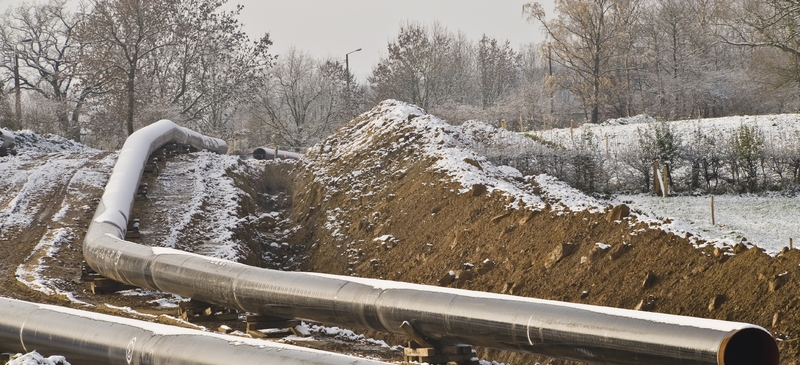
Pipe down, price up
The Russian-Ukrainian gas dispute is turning from a bilateral spat into a regional crisis. EU countries that share a border with Ukraine have reported dramatic drops in the volume of gas deliveries. Russia reduced its gas supplies to Ukraine on 1 January after Kiev refused to accept a roughly 40 per cent price hike. But Ukraine is not just a buyer; 80% of all gas destined for Europe goes through Ukraine. These deliveries appear to have been hit, too. Austria, Bulgaria, the Czech Republic, Germany, Greece, Hungary, Italy, Macedonia, Poland, Romania, Serbia, Slovakia, Slovenia and Turkey have all said their supplies are down, in some cases as much as 90%.
Kiev and Moscow have been here before - the previous gas cut-off in 2006 ended with Ukraine accepting a higher price, and the two sides agreeing a new contract. But the 2009 crisis is different. Moscow appears to have cut not just gas destined for Ukraine, but gas transiting through Ukraine to Europe as well.
Russia sells gas to Ukraine through annual contracts. This is most unusual – most gas supply agreements run for ten, even 35 years. The arrangement suits Russia – Ukraine still pays below-market rates, which Moscow raises each time it needs cash or when it is displeased with Ukraine's policies. Russian-Ukrainian relations have been terrible of late; Moscow has accused Kiev of arming the Georgians during the August 2008 war, so Russia has little reason to keep subsidising Ukraine's gas. Plus, Russian energy giants are in financial trouble and they badly need money. Russia may have political reasons to demand a big price hike, but it is also pursuing hardnosed business interests, and will continue to do so.
So the way to avoid future crises lies with Ukraine. The country needs to wean itself off its dependence on cheap Russian gas. First, it should reduce overall gas consumption. The Ukrainians consume twice the amount of gas per capita that neighbouring Poland does (according to BP statistics). This is partly due to the fact that the economy is driven by energy-intensive steel production. But inefficiency is the key factor. Ukraine needs to upgrade its industries and housing stock to consume less energy. This would lessen the impact of higher gas prices on Ukrainian economy.
As it grows accustomed to paying European prices for gas, Ukraine should also demand a multi-year supply agreement from Russia. The new contract should spell out how much gas prices will rise each year until they reach European levels. This would give Ukraine the predictability it needs for budgeting, and an incentive to reduce energy consumption. Kiev will have a stronger negotiating hand when it takes steps to ready the economy for European-level gas prices. Virtually all neighbouring countries have multi-year agreements, so Kiev should be able to secure one, too.
To further improve it negotiating position with Moscow, Ukraine should also increase domestic gas production. It already produces gas amounting to over 10% of its own needs, and its Black Sea shore holds further reserves. But the previous Kiev government awarded the exploration contract to an inexperienced, politically connected company. The current government overturned the decision but Ukraine lost time; it has failed to expand its domestic gas production in recent years. That needs to change.
Neither of these measures will bring about a swift end to the current crisis. It will probably go on for a few more days, with both sides coming under increasing pressure from Europe, and will likely end with Moscow imposing a price hike, and the two parties agreeing another annual deal. Then the real work begins.
